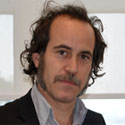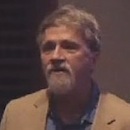Academic Editors
The following people constitute the Editorial Board of Academic Editors for PeerJ. These active academics are the Editors who seek peer reviewers, evaluate their responses, and make editorial decisions on each submission to the journal. Learn more about becoming an Editor.

Richard A. Schneider
Professor, Department of Orthopaedic Surgery; Director, Laboratory for Developmental and Evolutionary Skeletal Biology. BA, Hampshire College; MSc and PhD, Duke University.

Thomas W. Schoener
Distinguished Professor of Biology, University of California, Davis. Member of the US National Academy of Sciences and the American Academy of Arts and Sciences. Guggenheim Fellow. Received the MacArthur Award of the Ecological Society of America and the Fitch Award of the American Society of Ichthyology and Herpetology.

David Schrama
Research focus on tumorimmunology and tumorbiology of skin cancer especially melanoma and merkel cell carcinoma. PhD and Post-Doc at medical university hospital Wuerzburg. Now Associate Professor at Medical University Graz, Austria.

Helmut Schroder
Helmut Schröder, PhD in Human Biology, Diploma in Nutritional Sciences, Specialist in Nutritional Epidemiology is Head of the Cardiovascular Epidemiology and Nutrition Research Group,
CIBER Epidemiology and Public Health, and
Senior Investigator of the IMIM- Hospital del Mar Medical Research Institute, Barcelona, Spain. His basic research interest is the analysis of lifestyle-disease relationships. This includes studies of the effects of nutrition on obesity and other cardiovascular risk factors. He is involved in several large epidemiological and clinical intervention studies.

Martina Schroeder
Dr Martina Schroeder is a Lecturer and Head of the Host-Pathogen Interaction Lab at Maynooth University. Her research addresses viral recognition, innate immune signaling pathways, and the roles of DEAD-box proteins in immunity. Previously Dr Schroeder conducted postdoctoral research with Prof. Andrew Bowie at Trinity College Dublin. In 2007, she was awarded a postdoctoral career development fellowship by the Irish HRB. She completed her PhD at the Charité University Hospital in Berlin in 2003.

Ricarda I Schubotz
2011 Professor for Biological Psychology, University of Münster
2008 Group Leader “Motor Cognition” (W2 Minerva Programme), Max Planck Institute for Neurological Research, Cologne
2006/7 Dorothea Erxleben Professorship, University Magdeburg
2004 Habilitation Cognitive Neurology
1999-2007 Research Scientist, Max Planck Institute for Human Cognitive and Brain Sciences, Leipzig
1998 PhD Cognitive Sciences
1995-1998 Research Scientist, Academy of Sciences of Berlin-Brandenburg, Berlin

Richard Schuster
I am the Director of Spatial Planning and Innovation at the Nature Conservancy of Canada and an Adjunct Research Professor at Carleton University, studying the ecological impacts of human activities and develop novel techniques to prioritize conservation areas and strategies. I have a theoretical and applied background in quantitative ecology and statistics and spatial big data analysis. I develop novel analytical tools for researchers and other practitioners to explore and use in conservation planning and management.

D Samuel Schwarzkopf
Originally trained as a neurophysiologist with Frank Sengpiel (Cardiff), Sam has done cognitive neuroscience research on the human visual system since 2007. From 2008 until 2018 he worked at UCL (first as postdoc with Geraint Rees, followed by five years as independent research fellow). In 2017, he moved to the University of Auckland, New Zealand, continuing visual neuroscience research in the School of Optometry & Vision Science.
He is a Recommender (editor) at the PCI:RR and is an editor at PeerJ for Registered Reports going through this route.

Susanne Schweizer
Dr Schweizer is a Scientia Senior Lecturer at the University of New South Wales. Her translational research programme identifies cognitive and social targets for intervention and prevention of depression and anxiety during developmentally sensitive periods.

Claudia Scorolli
I am a Cognitive Scientist working as Associate Professor at the Department of Philosophy and Communication Studies of the University of Bologna.
I obtained my PhD in Philosophy of Language, Linguistics and Cognitive Sciences in 2009 at the University of Bologna, and my PsyD in Clinical Psychology, specialized in Analytical Psychodrama, in 2014 at the Mosaico Institute of Bologna (certified by MIUR).
My research has been focused on grounding of language in sensorimotor processes, as well as on language as social tool which modifies human's way to interact with the world. My experimental work currently extends to the study of the possibilities for physical/social interactions offered by the current interactive context, i.e. physical and social affordances. My scientific interest includes the investigation of cultural factors influencing cognitive and emotional processes.
From a clinical perspective, I have scrutinized new clinical interventions in the field of neurocognitive disorders, as psychosocial interventions for people with dementia.

Sophie Scott
Group Leader of the Speech Communication Lab and Deputy Director at the Institute of Cognitive Neuroscience at UCL. Fellow of the Academy of Medical Sciences. Wellcome Trust Senior Fellow. Chair in Cognitive Neuroscience. Honorary Degree from the University of Poppleton.
Scott is known for her public engagement work, including performing standup comedy, and was featured in a September 2013 edition of the BBC Radio Four programme The Life Scientific. In March 2014, she was invited to give a Friday Evening Discourse at the Royal Institution on the science of laughter. Her work on laughter has also toured science fairs and exhibitions as part of the Laughter_lab project. She has been awarded a UCL Provost's Award for Public Engagement. Sophie Scott will be presenting the Royal Institution Christmas Lectures in 2017. Entitled 'The language of life', the Lectures will explore the topic of communication.

Teresa M Seccia
Associate Professor in Internal Medicine, Dept. Medicine, University of Padova, Italy.
International PhD Degree in 'Arterial Hypertension and Vascular Biology'.
Field of interest: Clinical and translational research in high blood pressure and cardiovascular diseases.

